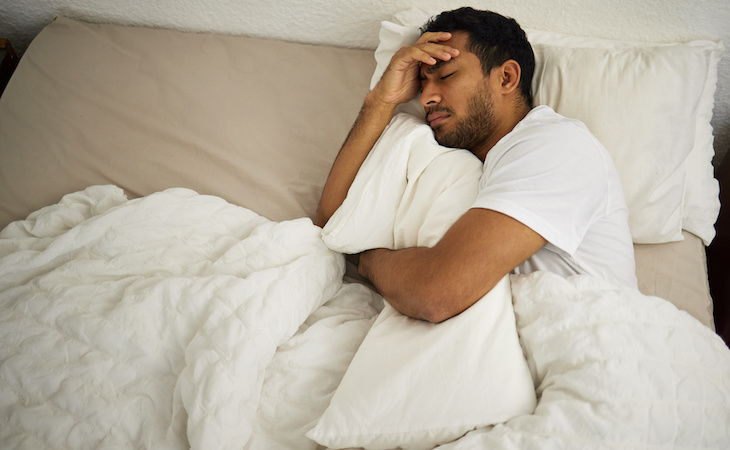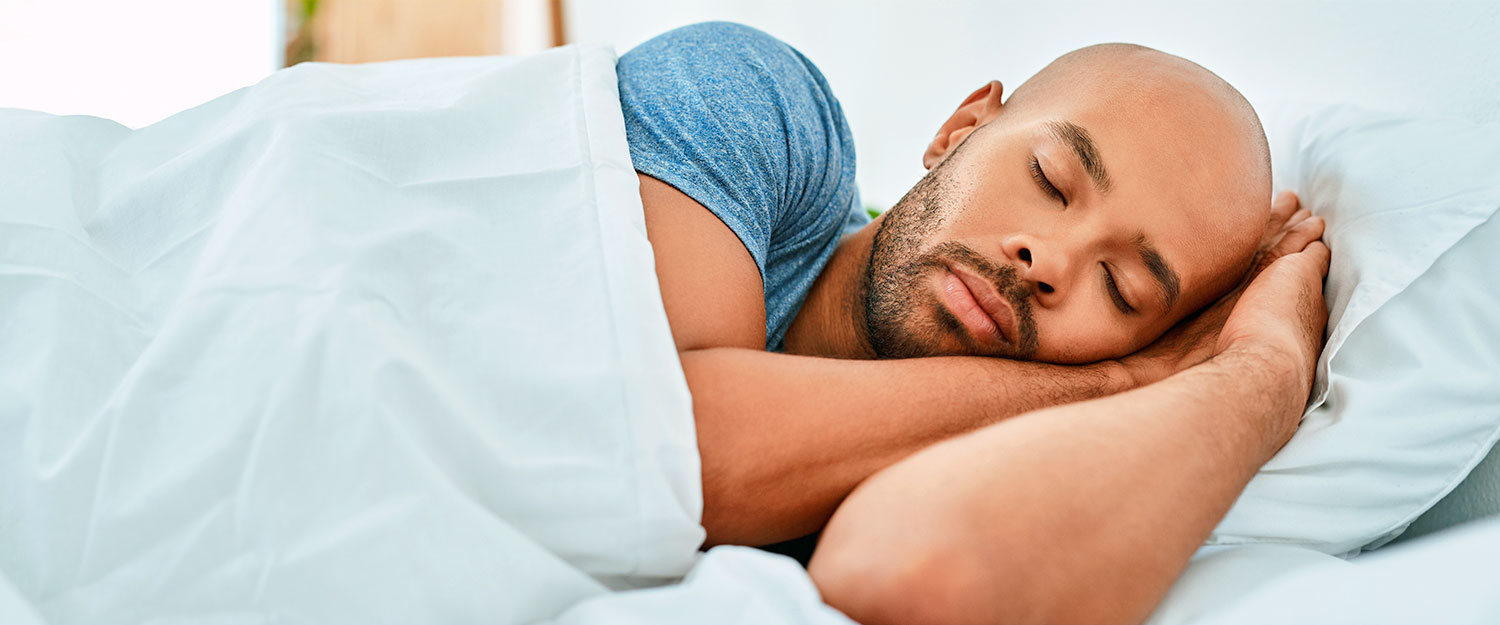Cutting-edge Insomnia Solutions - Find What Works for You
Cutting-edge Insomnia Solutions - Find What Works for You
Blog Article
Reliable Therapy Solutions for Managing Sleep Disorders and Enhancing Relaxed Sleep
In the realm of medical care, the administration of sleep problems and the mission for restful rest are pivotal parts of general well-being. As we navigate the complex landscape of sleep disorders and seek to boost our sleep experience, a much deeper understanding of these therapy services might hold the key to opening a more rejuvenating and fulfilling corrective journey.
Cognitive Behavioral Treatment for Insomnia (CBT-I)
Cognitive Behavioral Therapy for Sleep Problems (CBT-I) is an organized, evidence-based treatment technique that concentrates on addressing the hidden elements contributing to sleep disruptions. This type of therapy aims to modify behaviors and thoughts that exacerbate sleeplessness, eventually advertising healthy and balanced rest patterns. CBT-I usually entails numerous key components, consisting of cognitive treatment, sleep restriction, stimulation control, and rest health education and learning.
Cognitive therapy helps individuals determine and change negative thought patterns and ideas concerning rest that might be hindering their capacity to drop or stay asleep. Sleep restriction includes restricting the amount of time invested in bed to match the individual's actual rest duration, therefore raising rest effectiveness (insomnia solutions). Stimulus control methods help develop a strong organization between the bed and rest by urging individuals to go to bed only when sleepy and to avoid participating in promoting tasks in bed
Moreover, rest hygiene education concentrates on developing healthy and balanced sleep habits, such as maintaining a consistent rest timetable, creating a relaxing going to bed regimen, and optimizing the rest environment. By dealing with these aspects thoroughly, CBT-I offers an efficient non-pharmacological intervention for taking care of insomnia and boosting overall rest high quality.
Sleep Hygiene Practices
Having established the foundation of cognitive restructuring and behavior alterations in attending to sleeplessness via Cognitive Behavioral Therapy for Sleeping Disorders (CBT-I), the focus now changes towards exploring important Sleep Hygiene Practices for keeping optimum rest quality and overall wellness.
Rest health practices incorporate a variety of behaviors and ecological factors that can considerably affect one's capability to go to sleep and remain asleep throughout the night. Regular sleep and wake times, creating a relaxing going to bed regimen, and maximizing the rest environment by keeping it dark, silent, and cool are important components of great sleep hygiene. Restricting exposure to displays prior to bedtime, preventing energizers like high levels of caffeine near to going to bed, and participating in normal physical activity during the day can also promote far better rest quality.
Furthermore, exercising relaxation strategies such as deep breathing workouts or reflection prior to bed can aid relax the mind and prepare the body for rest. By integrating these sleep hygiene practices right into one's day-to-day routine, individuals can develop a healthy sleep pattern that supports relaxing rest and general health.
Relaxation Techniques and Mindfulness
Applying relaxation strategies and mindfulness practices can play a crucial role in promoting a sense of calmness and promoting quality sleep. sleep disorder treatment. These techniques intend to quiet the mind, reduce anxiety, and develop an optimal setting for restful sleep. One widely practiced approach is deep breathing workouts, where individuals concentrate on slow, deep breaths to kick back the body and mind. Modern muscle leisure involves tensing and after that releasing each muscle group, advertising physical leisure. Furthermore, directed imagery can aid transfer people to a serene place in their minds, aiding in stress and anxiety decrease and enhancing rest high quality.
Mindfulness practices, such as meditation and yoga, are also effective in advertising leisure and enhancing sleep. Mindfulness urges people to stay present in the minute, releasing bother with the past or future. By including these practices into a bedtime regimen, people can indicate to their bodies that it is time click for info to prepare and loosen up for sleep. Overall, incorporating relaxation strategies and mindfulness practices can considerably contribute to taking care of sleep disorders and boosting general sleep quality.

Medicine Options for Sleep Disorders
After checking out relaxation strategies and mindfulness practices as non-pharmacological treatments for enhancing sleep top quality, it is vital to take into consideration medicine alternatives for people with sleep disorders. In cases where lifestyle adjustments and therapy do not offer sufficient relief, medication can be a useful device in taking care of rest disturbances.
Typically prescribed medications for rest conditions include benzodiazepines, non-benzodiazepine hypnotics, antidepressants, and melatonin receptor agonists. Antidepressants, such as trazodone, can be valuable for people with co-occurring clinical depression and rest disruptions - insomnia solutions.
It is crucial for people to consult with a doctor to establish one of the most ideal medicine choice based upon their particular sleep disorder and case history.
Light Treatment for Body Clock Regulation
Light treatment, additionally called photo-therapy, is a non-invasive therapy method made use of to manage circadian rhythms and enhance sleep-wake cycles. This treatment includes exposure to brilliant light that resembles natural sunlight, which aids to reset the body's body clock. By exposing people to particular wavelengths of light, normally in the morning or night depending on the desired result, light treatment can properly adjust the body clock to advertise wakefulness throughout the day and improve relaxed sleep at night.
Research study has shown that light therapy can be particularly beneficial for individuals with body clock problems, such as delayed sleep stage disorder or jet lag. It can also be helpful for those experiencing seasonal depression (SAD), a sort of depression that usually takes place throughout the cold weather when all-natural light direct exposure is lowered. Light treatment is typically well-tolerated and can be made use of in conjunction with other therapy approaches for rest problems to maximize results and boost overall sleep top quality.
Conclusion
In verdict, efficient treatment remedies for taking care of rest problems and boosting restful rest consist of Cognitive Behavioral Therapy for Sleep Problems (CBT-I), rest health methods, relaxation techniques and mindfulness, drug options, and light therapy for circadian rhythm policy. These methods can assist people improve their rest quality and general wellness. It is necessary to seek advice from with a medical care service provider to determine one of the most appropriate approach for resolving sleep problems.
As we navigate the elaborate landscape of rest problems and seek to enhance our sleep experience, a much deeper understanding of these therapy remedies might hold the secret to unlocking a more refreshing and fulfilling corrective trip.
Rest restriction includes restricting the amount of pop over to these guys time invested in bed to match the person's real sleep period, thus enhancing sleep efficiency. Regular sleep and wake times, creating a relaxing bedtime regimen, and optimizing the rest setting by keeping it dark, silent, and cool are critical components of excellent rest hygiene. Light therapy is usually well-tolerated and can be made use of in combination with other treatment methods for sleep disorders to maximize outcomes and boost overall sleep high quality.

Report this page